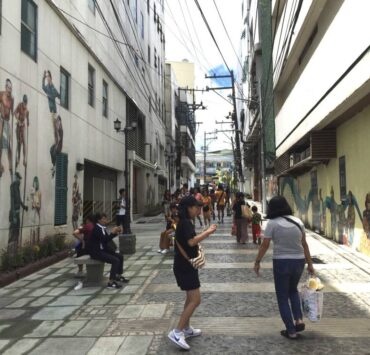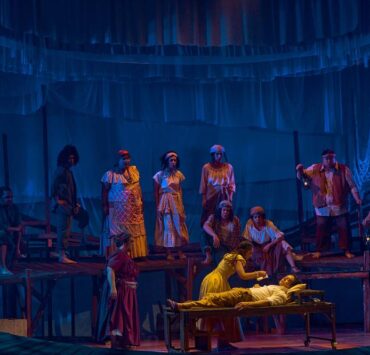TP’s ‘Balete’: Beautiful, brutal story of greed and awakening
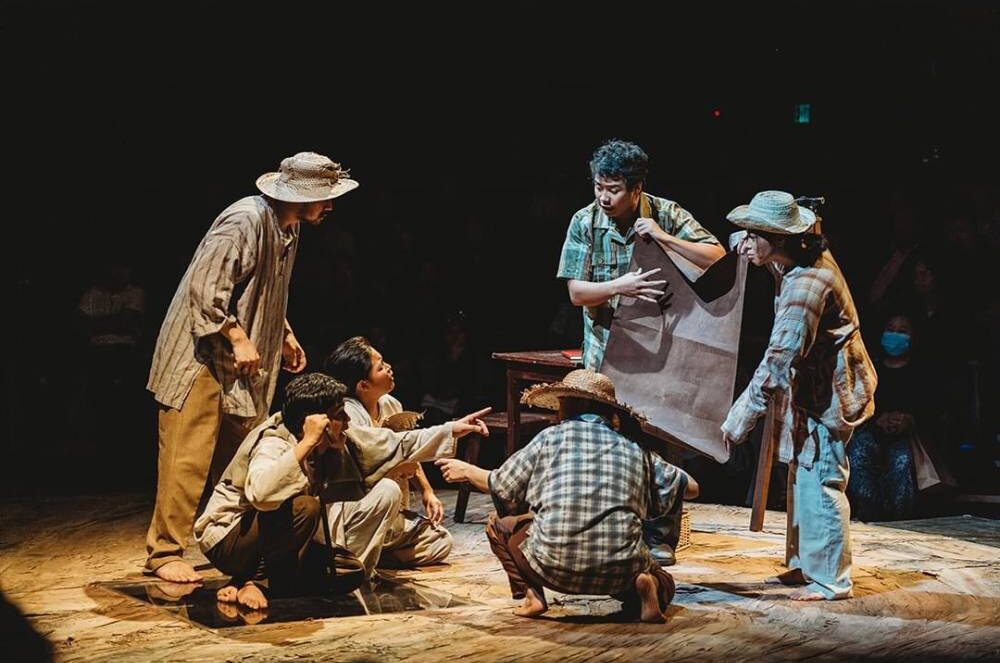
Tanghalang Pilipino (TP) opened its 38th season on Sept. 13 with “Balete,” an adaptation of National Artist for Literature F. Sionil Jose’s novel “Tree,” based on a 2002 script by playwright Rody Vera.
For this production, Vera updated his script, which was originally commissioned by the Philippine Educational Theater Association, by weaving it with passages from “Promdi,” Jose’s autobiography.
Born on Dec. 3, 1924, in Rosales, Pangasinan, Jose is best remembered for “The Rosales Saga,” a five-novel epic that sweeps across 100 years of Philippine history, from 1872 to 1972. The collection, embroidered with memories and mosaics of his childhood in his home province, highlights the revolutionary history of the Philippines, notably the peasants’ resistance against landlords.
TP’s “Balete” is significant on two counts. First, it marks veteran actor Nonie Buencamino’s return to the CCP stage, and to TP in particular, after 12 years of absence. Buencamino is a busy TV-movie actor these days, and is regularly seen in the “FPJ’s Batang Quiapo” teleserye.
Second, he is reunited with “Balete” director Chris B. Millado, who also directed Buencamino in TP’s award-winning musical “Stageshow,” written by the late Mario O’Hara. Buencamino costarred with wife and fellow actor Shamaine Centenera-Buencamino in “Stageshow.”
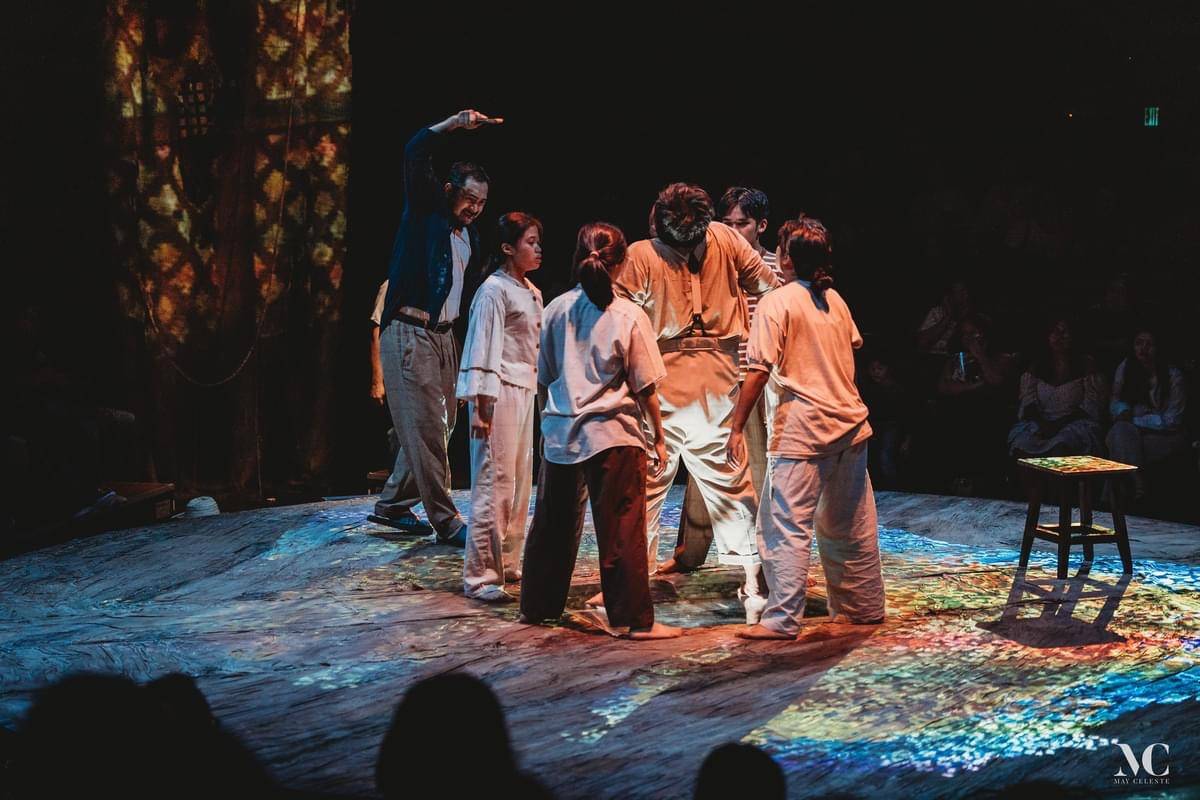
Under Millado’s masterful direction, TP’s “Balete” becomes a stunning, stirring story of a knotty father-and-son relationship that also reflects the exploitative ties between peasants and landlords, the tillers of the land hopelessly buried in penury to their greedy masters.
Ravishing performance
Remarkable in his eloquent delivery of lines, Buencamino effortlessly shifts character from the young boy Kiko to Don Espiridion, Kiko’s papang and also the amo (boss or master) to farm workers, and the narrator, who guides viewers through the gripping two hours and 35 minutes of the play as Kiko evolves into his moment of moral awakening.
It’s a ravishing performance, requiring no need for any costume changes to make the audience believe that Buencamino is a young boy at this moment, then the authoritarian father or the narrator in the next.
Equally awesome is the seven-member ensemble from TP’s Actors’ Company which, like Buencamino, essays multiple characters, with male actors even playing female roles. They are Marco Viana, Jonathan Tadioan, Lhorvie Nuevo-Tadioan, Tony Go-Yadao, Earvin Estioco, Gelo Molina and Ynna Rafa.
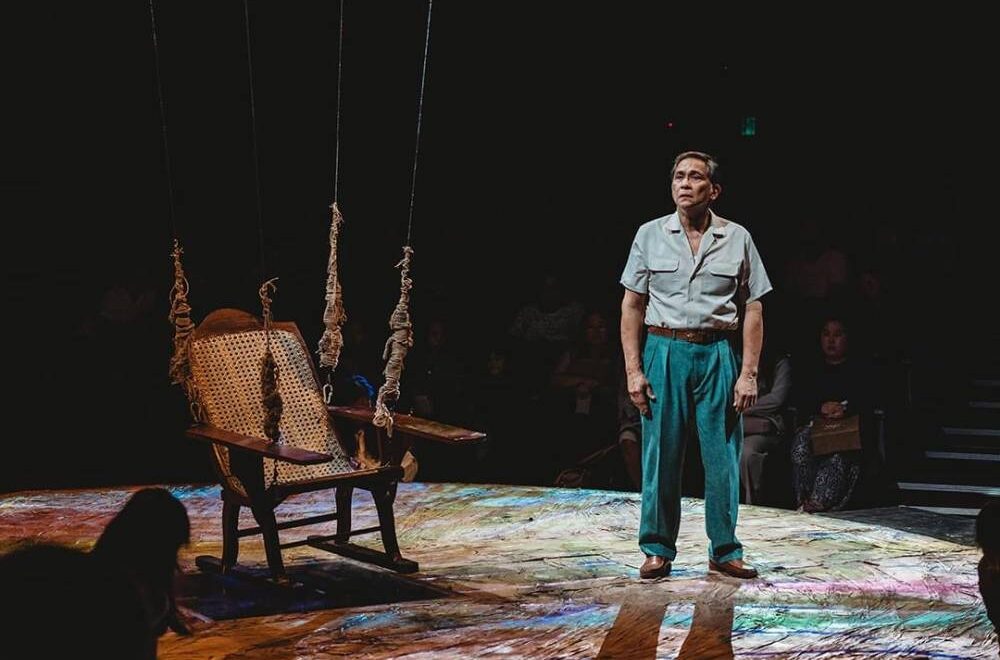
Set designer Wika Nadera transports the audience to a vast hacienda in Pangasinan from the moment the audience members pass through columns of cascading ripped sako (sacks) to denote the troubled agrarian setting of this play.
Nadera’s round stage is also a nod to the never-ending cycle of intergenerational servitude by the exploited peasants, with the balete tree both a mute witness to their vassal lives and a stand-in for the oppressive social system. The balete tree may stand majestic and tall, but nothing also grows beneath it, as it smothers the life in its surroundings.
Assistant director and movement director Delphine Buencamino masterfully choreographed the ensemble to conjure this entire world of feudalism and bondage through cohesive, expansive movement and minimal deployment of props.
Roman Rallos Cruz’s magical lighting design, meanwhile, converted the sako columns into the balete tree shadows, while the images crafted by projection designer JM Jimenez completed the task of visualizing this seething community in the audience’s mind, the projections mutating the stage surface, creating painting-like images and shrouding the actors in despair or dread or dashed hopes.
Teresa Barrozo’s music and sound design is the final element that hoists this production to an outstanding, remarkably well-thought-out plane.
“Balete” runs until Oct. 6 at CCP’s Tanghalang Ignacio Gimenez, Pasay City. Tickets available at TicketWorld and Ticket2Me.














